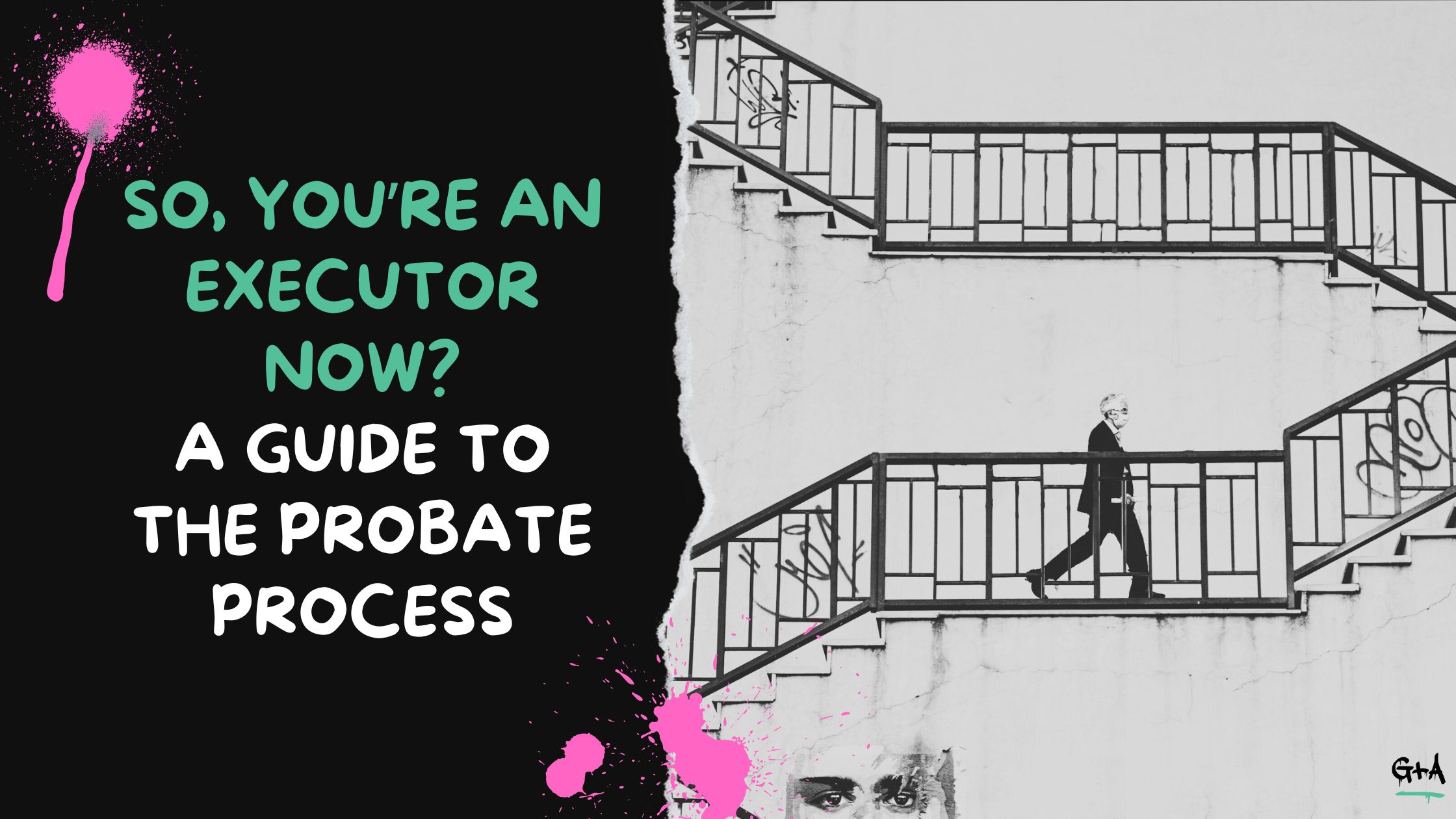Being named as the executor of an estate might feel like a vote of confidence. But once the dust settles and the paperwork starts piling up it often feels more like a full-time job in a language you don’t speak. If you’ve found yourself responsible for managing a deceased person’s estate, welcome to the world of probate, letters of administration, and endless to-do lists.
Here’s what you need to know (and what no one else is saying) about navigating the probate process in New South Wales.
First Things First: What Is Probate, Anyway?
In short? Probate is the court’s way of giving you the green light to deal with the assets of a deceased person.
If there’s a will, you’re applying for a grant of probate official confirmation that the will is valid and you’re legally allowed to act as the executor. If there’s no will, or the named executor is unable or unwilling to act, you’ll be applying for letters of administration instead, which gives you the same powers but under intestacy law.
And no, it’s not just a form you fill out online. The process involves collecting documentation, submitting an application to the Supreme Court, publishing notices, and waiting… and waiting some more.
Probate vs Letters of Administration: What’s the Difference?
It all comes down to whether there’s a valid will.
- Probate = There is a valid will and you’re the named executor.
- Letters of Administration = No will, or no valid will, and you need court approval to step in and manage the estate.
In both cases, your role will be largely the same; you’ll be responsible for the estate administration: identifying and collecting the assets, paying off debts, and distributing the remainder to beneficiaries or next of kin.
Executor Duties (Or, Your New Side Hustle)
Being an executor or administrator isn’t just ceremonial. You’ve got real legal duties, and messing them up can have serious consequences.
Here’s what’s expected:
- Notify beneficiaries (and sometimes creditors). Transparency is key.
- Identify and value assets from bank accounts to real estate and everything in between.
- Apply for probate or letters of administration through the Supreme Court of NSW.
- Handle debts and taxes, including any final income tax returns.
- Distribute the estate according to the will or, if there’s none, according to intestate succession laws.
If that sounds like a lot, it is.
Intestate Succession: When There’s No Will
If someone dies without a valid will, they are said to have died intestate. And no, that doesn’t mean the state gets everything (though in rare cases, it can). NSW has a set order of priority for distributing assets in these cases—usually starting with the spouse, then children, then more distant relatives.
If the family tree is messy or contested, this process can quickly get complicated. Mediation, court hearings, and family disputes are all too common.
Common Pitfalls to Avoid (Seriously, Don’t Do These)
- Waiting too long to act. Deadlines exist, and delays can lead to penalties or frozen assets.
- Distributing the estate too early. You must wait until debts, liabilities, and claims are finalised. Jumping the gun can land you in hot water.
- Not keeping proper records. If anyone questions your handling of the estate, documentation will be your best defence.
- Going it alone. This isn’t the time to play DIY lawyer. A single error can derail the entire process.
Final Thoughts
Whether you’re managing a straightforward estate or dealing with a complex one full of missing paperwork, family tension, or business assets, the probate process can be daunting. Executors and administrators carry legal responsibility and emotional weight through one of the most stressful jobs you never asked for.
At Green & Associates Solicitors, we take the pressure off. We guide executors, administrators, and families through the entire estate administration process ensuring compliance, minimising stress, and protecting your legal position.
If you’ve been named in a will or are stepping up after someone has passed without one, get in touch. We’ll help you understand your role, avoid costly mistakes, and take the next steps with clarity and confidence.




